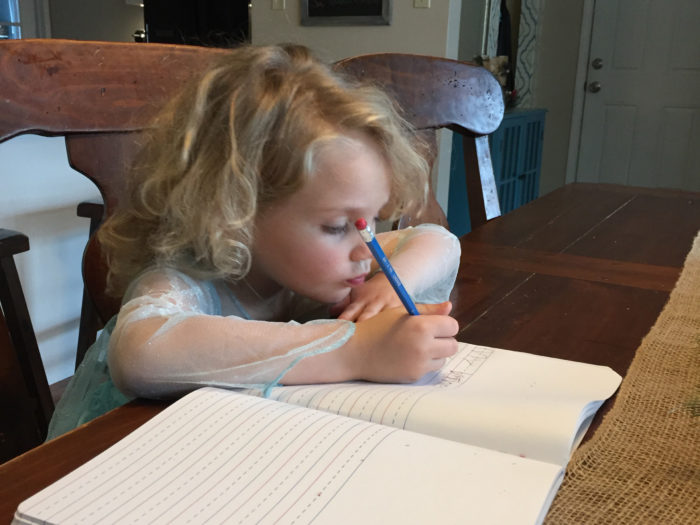3 Truths to Teach Your Emotional Child
By Katie Bennett, Contributing Writer.
Knowing how to best help an emotional child can be difficult. It’s hard to know what to do when they are genuinely that upset (not just putting on a show), despite the irrationality of their reaction to the situation.
As my kids have gotten older, I’ve tried a few different things to help them process through their feelings, particularly my highly emotional one. These methods have not always been a home run, but I do believe they are taking root over time.
I’ve seen some great progress and triumphs through these few conversations that we repeat often together.
Before I share those with you, I would like to note, I’m not a trained behavioral specialist or anything of the sort.
However, these three “truths” have helped my daughter and I process through her overwhelming emotions together. I have also seen her take these truths to heart and implement them of her own accord. She is so proud of herself when she successfully rises above those high-level emotions and makes good decisions when she doesn’t feel like it!

Three Truths to Teach Your Emotional Child About His or Her Feelings
Feelings are Valid
The feelings that we have are not wrong or invalid. There is not right way to feel. We should not shame our children for the way they are feeling, but rather validate their feelings, and use them as a jumping off point for teaching them how to cope with those feelings.
Sample Dialogue
“I told you that you can’t go swimming with your cousins, and I can see that you are very disappointed. I understand that! Disappointment is a tough emotion to feel. I don’t like it either. It’s okay that you’re feeling this way.”
Feelings are Tricky
When our actions are driven by our feelings, we are certainly a ship tossed around in the waves.
When our child feels hurt, he should not scream and throw sand at his friend. When our child feels lonely, she should not hide in her room for an extended period of time, and the sob accusations at her mother for not reading her mind.
Although feelings are valid, they are not a reliable guide for our choices. We must teach our children to discern what their emotions would have them do from what their right thinking would have the do, and then act on the latter.
This might seem like too high of a task for a young child, but I’ve gotten to see it put into action in my five-year-old! Teaching this explicitly empowers a child to be self-aware and successful.
Sample Dialogue
“Sometimes your feelings will trick you. Remember, don’t do what those tricky feelings are telling you to do. Rather, do what your mind knows is right. Your feelings are telling you to collapse in a heap of sobs because we are leaving before you’re done playing with your friend, but your mind knows that you should obey me and go put on your shoes. You must choose to do the right thing, even when your feelings are telling you something different. Your feelings are not wrong, but they are very tricky.”

Feelings (and Your Reactions) are Yours, and You Must Own Them
No one can technically “make” us feel upset or sad or disappointed. Ultimately, those feelings are our responsibility. We can choose to exercise self-control, or we can choose to totally lose it. We can choose to respond gracefully or we can choose to give full rein to anger. We do have a distinct measure of choice.
Now, of course others can be hurtful towards us, and yes, there are natural feelings that come with those wrongs. Again, feelings are valid, no matter how justified we judge those feelings to be.
But our children mustn’t point a finger at their sibling who purposefully antagonized them and scream, “He made me upset!” That’s not the truth of the situation.
Sample dialogue:
“Your brother did not “make” you upset. The fact is, he antagonized you and disrupted your play, and that was wrong. And you are upset, that’s also a fact. But you must take responsibility for your emotions. You chose to get upset, and you can also choose to calm down.”
Do you have an emotional child? How do you help him or her rise about those emotions?

